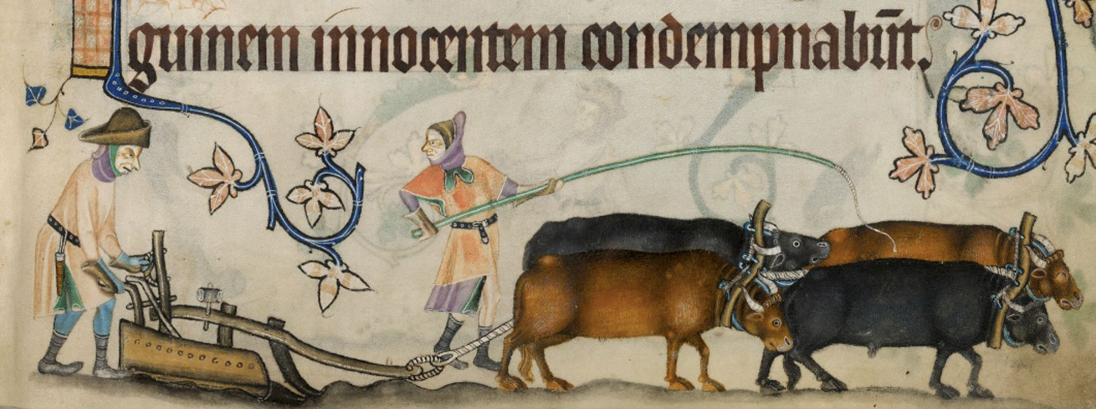When the Lights Go Out
The Friday Reflection by James M. Kushiner
January 29th, 2021

C
alling a thing by its proper name is a service to truth, if not to political ambitions or evil designs. Of course, ambitions abide and creating labels to denigrate an idea, opponent, or promote your agenda is nothing new. If I am a "Progressive" and you are not with me, you must be against Progress.
The Dark Ages was a clever label, attributed to Petrarch (d. 1374), stuck on the period after the decline of the Roman Empire which neatly contrasted with an earlier period of antiquity which boasted learning and literacy. With the recovery of classical texts, the classical light was dawning after a Dark Age and the Renaissance had finally come. Good for book sales, anyway.
The notion of the Dark Ages, a subset of those dreary Middle Ages, lingers on in popular culture and public ignorance, while serious historians have abandoned the Dark Ages label as modern research has brought to light so much information about those not-so-dark times.
Two Dark Age saints are commemorated today in the St. James Calendar of the Christian Year.
The first, Gildas, was born c. 500 when the lights were being turned off, near the northernmost extent of the Roman Empire near the River Clyde in Scotland. Gildas was schooled in Wales and became a monk who participated in the spread of the Gospel in the British Isles and Brittany.
He composed a three-part "sermon" De Excidio et Conquestu Britanniae (On the Ruin and Conquest of Britain), in response to the dire straits of much of Britain, suffering multiple barbarian invasions. Christianity had been planted and had grown in Ireland, Wales, Scotland, and Britain before this, but now much was lost or under siege.
Gildas actually might have agreed that a dark age had arrived! Part three begins: "Britain has priests, but they are fools; numerous ministers, but they are shameless; clerics, but they are wily plunderers." One other work attributed to Gildas the Wise has survived, On Penance, a penitential for monks and clerics. Apparently he thought it was needed.
Analysis of his text reveals that Gildas had "first-hand knowledge of Latin as a living language." He uses technical terms precisely; it is likely he was formally schooled by a Roman grammaticus. Phrasing suggests familiarly with Cicero, Virgil's Aeneid, Jerome, and the "choice, manipulation, and control of this structure would have come most naturally to someone who had been trained in declamation by a rhetor." Not bad for a sixth century Dark Age writer, a hundred years after the Romans had left.
"A century seems a long time for Roman institutions to have survived; but here too our picture of Romano-British society has perhaps been unduly influenced by the picture of Dark-Age Wales gained from mediaeval sources. In any case, Gildas's De Excidio Britanniae implies an audience literate enough in Latin to take the point of his criticisms. There are no grounds for imagining Gildas as a lone voice speaking to an uncomprehending audience of illiterate barbarians. His work is highly polished and sophisticated and implies an audience (no matter how great or how small) of similar sophistication." (Michael Lapidge, "Gildas's Education and the Latin Culture of Sub-Roman Britain," Studies in Celtic History V: Gildas: New Approaches)
Did Gildas have his lone manuscript of De Excidio and carry it around to read to anyone who would listen? It must have been copied for distribution. Why else bother?
So much for Dark Age Britain, with its highly-educated men—not to mention foolish priests, shameless ministers, and wily clerical plunderers.
Over on the Continent, we find our second Dark Age saint commemorated today, Sulpicius Severus (d. 591), Bishop of Bourges, who is not to be confused with Sulpicius Severus (d. 425), biographer of Martin of Tours. He is also known as St. Suplitius, or Sulpice, and is mentioned by Dark Age writer Gregory of Tours, who wrote a History of the Franks, Lives of the Fathers, and Miracles of St. Martin of Tours and St. Julian.
I find attention to the Dark Ages can be enlightening. Call everything for what it is. Any age in which we live is more or less dark with sin while the Light is always within reach, through prayer, study of Holy Scripture, and repentance. The Lord knows, we've been here before. Penance, anyone?
Yours for Christ, Creed & Culture,

James M. Kushiner
Executive Director, The Fellowship of St. James
—James M. Kushiner is Executive Editor of Touchstone: A Journal of Mere Christianity, and Executive Director of The Fellowship of St. James.







